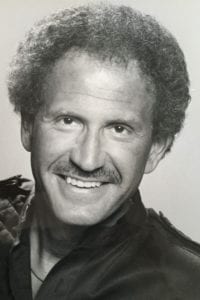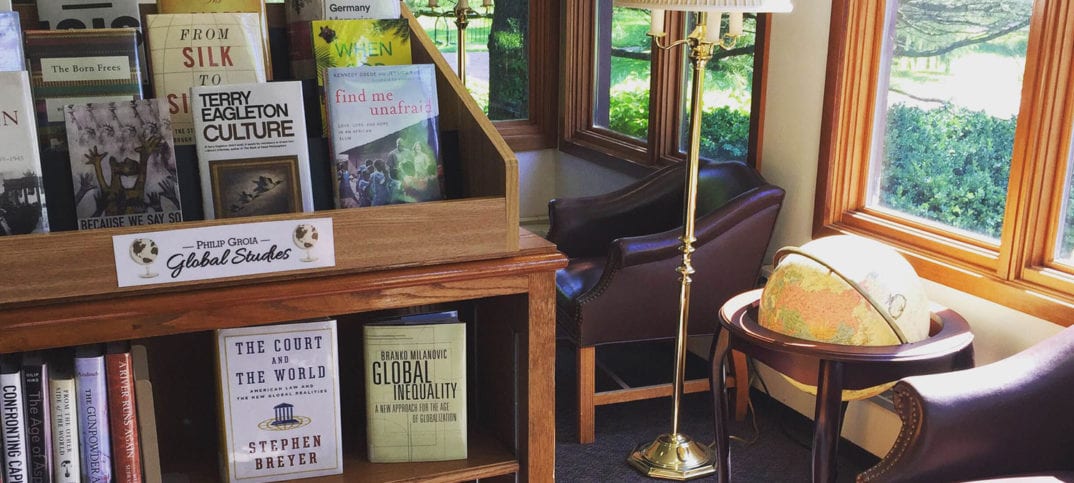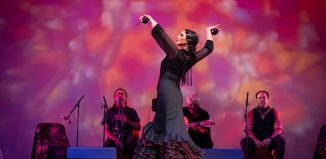By Susan Risoli
A teacher can change lives. With a $50,000 bequest to Emma S. Clark Memorial Library, former teacher Philip Groia funded a permanent global studies collection. Those who remember Groia, who died in 2014 at age 73, will appreciate the fact that his gift will enrich lives for years to come.
Groia taught social studies and global studies to ninth-graders at Paul J. Gelinas Junior High School and was advisor to the student government. He was “an internationalist,” agreed retired fellow teachers and friends John Deus and Judy Albano in a recent interview. He had an abiding curiosity about people and their lives, they said.
Groia never married and had no children, but he thought of his students as his kids and “they adored him,” said Deus. “He was a ‘kids first’ kind of teacher.”
Albano said relating with his students was one of Groia’s strengths, “[He was] ‘Mr. Cool.’ He was very relaxed with the kids, very easy with them.”
Former student Amy Cohas remembered being taken aback on the first day of social studies class, when she found her teacher sitting in the back of the classroom instead of in the customary spot up front. For Groia, it was just another way to connect with kids.
“He was really unusual,” Cohas said in a phone interview. “He had a lot of authority, but he was low-key and funny and affectionate.”

Groia called his tests “practical everyday applications,” Cohas recalled, and he delivered them verbally to encourage students to think about the material.
His own worldwide travels were often part of class discussions.
“He was trying to expose us to a wider world,” Cohas said. “It raised our expectations as to what teachers could be.”
The bond between students and their teacher was especially strong, Cohas said, the day some kids baked Groia a birthday cake and brought it to school.
“I remember he looked up as he was slicing the cake and said, ‘I don’t want this to go to your heads, but I really love you guys,’” she recalled.
Groia sent his students to Emma Clark to work on their school assignments, and did his own research there too. He had a special interest in early rhythm and blues music, especially the street corner groups that filled 1950s and ‘60s New York City with their vocal harmonies.
His book on the topic, “They All Sang on the Corner,” is part of the library’s holdings. Still, said library director Ted Gutmann, it came as a surprise that Groia’s will provided for Emma Clark.
“I think I did a little bit of a double take, when I saw the figure of $50,000,” Gutmann said. Though Groia’s gift is the first bequest to Emma Clark in Gutmann’s tenure as director, there have been other benefactors in the library’s 125-year history, he said.
The Philip Groia Memorial Global Studies Collection was started last year and includes 100 items on current events and cultures throughout the world.
“Right now it’s basically books,” Gutmann said. “But there are really no strings attached to the gift.” Eventually it may include DVDs or other media.
Gutmann said having a well-curated global studies collection available for all is important to keep people informed, “Especially because so much of what’s happening now is, people group together with their own political beliefs and they don’t listen to what the other side is saying,” he said.
Emma Clark is a natural home for learning about people, their cultures and their governments, Gutmann continued, because “a library is one of the few places these days, it seems, where you can still come and get information without a bias.”
Tony Calleja was a friend.
“He came from a strict household,” Calleja said of his friend. “They expected him to be something different than what he felt. But he was his own man and went through life his own way.”







